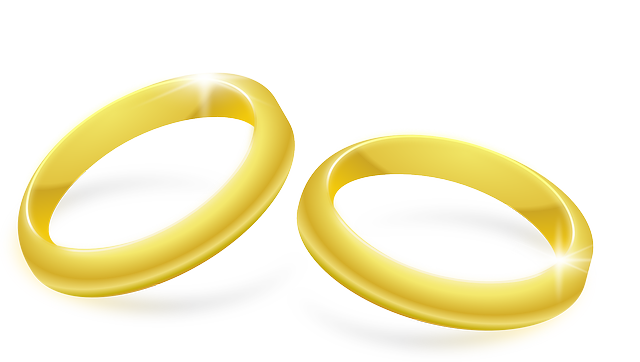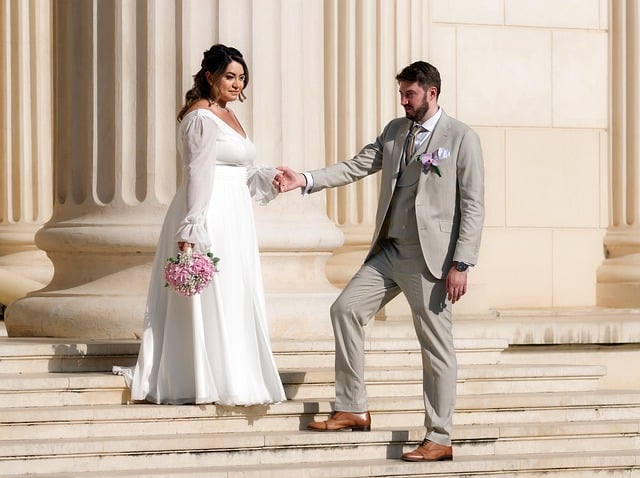In UK adoption cases, a precise and accurate marriage certificate translation UK is essential due to the legal requirements set forth by the Adoption and Children Act 2002. The Home Office mandates that such translations be conducted by professional translators endorsed by relevant authorities, accompanied by a declarant statement attesting to the document's exact accuracy and authenticity, along with any necessary certification or apostille for international recognition. Translators must be proficient in both languages and hold qualifications recognized by bodies like the Official Languages SCIO and the Chartered Institute of Linguists (CIOL). This ensures that the translated documents meet UK legal standards and are legally sound, facilitating a more efficient adoption process. It is imperative to choose translators with expertise in handling legal documentation, as an inaccurate translation can have significant repercussions on the case and the child's well-being. Therefore, for those requiring a marriage certificate translation UK within the context of adoption, it is crucial to engage with professional translators certified by the Office of the Immigration Services Commissioner (OISC) or similar authorities, avoiding machine translations that may not meet legal standards. This guarantees the translated document's acceptance and aligns with the strict legal requirements of UK adoption proceedings.
When navigating the complexities of adoption within the UK legal framework, documents such as marriage certificates often assume critical importance. This article delves into the essential aspects of translating marriage certificates for adoption cases, emphasizing the legal requirements and the significance of precise translation services in the UK. We explore the intricacies involved in obtaining a reliable translation, highlighting the best practices to ensure legal compliance and a seamless process. For those embarking on this journey, understanding the nuances of marriage certificate translation UK becomes paramount for successful adoption proceedings.
- Understanding the Legal Requirements for Marriage Certificate Translations in UK Adoption Cases
- The Role of Accurate Translation in Marriage Certificate Documents for Adoption Proceedings
- Navigating the Process: How to Obtain a Marriage Certificate Translation in the UK
- Choosing a Professional Translation Service Specializing in Legal Documents for Adoption
- Best Practices for Marriage Certificate Translations and Tips for a Smooth Process in Adoption Cases
Understanding the Legal Requirements for Marriage Certificate Translations in UK Adoption Cases

In the context of UK adoption cases, the translation of marriage certificates assumes significant importance due to the stringent legal requirements that govern such procedures. The UK’s Adoption and Children Act 2002 mandates that all foreign documents, including marriage certificates, must be accurately translated into English by a professional translator who is accredited and recognised by the appropriate authorities. This translation must adhere to the highest standards of accuracy and legality, as it serves as a critical piece of evidence in the adoption process. The Home Office stipulates that these translations must be accompanied by a statement from the translator confirming their accuracy and authenticity, along with any necessary certification or apostille that verifies the document’s validity across international borders.
Navigating the legal framework for marriage certificate translation in UK adoption cases requires a thorough understanding of the Official Languages SCIO (formerly the Scottish Government) standards and the Professional Translators’ Centre (now part of CIOL, the Chartered Institute of Linguists). The translator must be not only a native speaker of the target language but also possess specific qualifications that attest to their professional competence. This ensures that the translated marriage certificate is not only understandable within a legal context but also meets the evidential criteria set out by UK law, facilitating a smoother adoption process for all parties involved.
The Role of Accurate Translation in Marriage Certificate Documents for Adoption Proceedings

In the context of adoption proceedings, the integrity and precision of marriage certificate translations hold paramount importance, especially within the UK legal framework. A marriage certificate translation UK is not merely a linguistic conversion but a critical legal document that validates the marital status of prospective parents. The role of professional translators who specialize in legal documents becomes pivotal as they ensure that every detail from the original certificate is accurately reflected in the target language, maintaining the document’s authenticity and legality. This meticulousness is crucial to avoid any discrepancies or misunderstandings that could potentially delay or complicate the adoption process. Translators must adhere to strict standards of accuracy and comply with the UK’s legal requirements for official translations, which often necessitate a certificate of accuracy and sometimes the involvement of a solicitor or official body to verify the translation. The implications of an incorrectly translated marriage certificate in adoption proceedings can be significant, potentially jeopardizing the case and, more importantly, the welfare of the child involved. Therefore, it is imperative to engage translators with expertise in legal documentation and proficiency in the languages involved to ensure that the marriage certificate translation UK stands as a reliable testament to the applicants’ marital status, facilitating a smoother and more efficient adoption process.
Navigating the Process: How to Obtain a Marriage Certificate Translation in the UK

In the context of adoption cases within the UK, obtaining a precise and legally recognised marriage certificate translation is a pivotal step. Prospective adoptive parents must present authentic documentation to legalise an international marriage within UK jurisdiction. The process begins with identifying a reputable translation service that specialises in certified translations for legal purposes. These services should be proficient in the languages pertinent to your marital certificate and familiar with the UK’s stringent legal document requirements. The translated document must carry an official stamp or seal, affirming its authenticity and accuracy. Additionally, it should come with a statement of truth, often sworn before a notary public, further validating the translation’s veracity. This due diligence ensures that the marriage certificate translation UK meets the necessary standards for UK adoption proceedings, thereby facilitating a smooth process for those looking to expand their family through adoption.
Once the appropriate translation service is selected, they will guide you through each step of the translation process. This includes the initial verification of your original marriage certificate, followed by the translation into English or the required language as dictated by UK legal standards. It’s imperative that the translation captures all relevant details without alteration, as this document will be scrutinised for its role in the adoption proceedings. The translated certificate should reflect every nuance of the original, from dates and places to names and marital status, ensuring it aligns with UK legal paperwork requirements. Upon completion, the translated marriage certificate is then ready to be submitted to the court or relevant authority overseeing the adoption process.
Choosing a Professional Translation Service Specializing in Legal Documents for Adoption

When navigating the complex process of adoption, legal documentation plays a pivotal role. A marriage certificate translation UK is often required to establish family ties and comply with legal requirements. To ensure accuracy and legality in such sensitive matters, it’s crucial to engage with a professional translation service that specializes in legal documents for adoption. These translators are adept at handling the nuances of legal language and the intricacies of marriage certificate translations, which are unique to each country. Their expertise ensures that the translated document accurately reflects the original text, fulfilling the necessary legal standards within the UK’s jurisdiction. This precision is not only about understanding languages but also about being well-versed in the specific laws and regulations governing adoption and international family ties. By choosing a service with a proven track record in this niche, prospective adopters can confidently submit their translated documents, knowing that they meet the stringent requirements set forth by the UK’s legal framework for adoption cases. This due diligence is essential in facilitating a smooth and successful adoption process, where every detail matters.
Best Practices for Marriage Certificate Translations and Tips for a Smooth Process in Adoption Cases

When engaging in adoption processes that necessitate marriage certificate translations within the context of the UK, it is imperative to adhere to best practices to ensure the legal validity and recognition of the translated documents. A marriage certificate translation for UK-based cases should be performed by a professional translator who is not only proficient in both languages but also well-versed in legal translation nuances. The Office of the Immigration Services Commissioner (OISC) or the relevant authority should approve any certified translator involved in such sensitive matters. The use of machine translations, while sometimes convenient, often falls short of the precision and accuracy required for official purposes. Therefore, a human translator with expertise in legal terminology is essential to provide an accurate translation that reflects the original document’s intent and meaning.
To navigate this process smoothly, it is recommended to engage a translator who specializes in legal document translations and is familiar with the adoption process regulations specific to the UK. This ensures that the translated marriage certificate aligns with the legal standards set forth by UK authorities. Additionally, it is advisable to request a translation that includes a certified statement attesting to the accuracy of the translation. This certification often requires the translator’s contact information and signature, rendering the document legally binding and acceptable for submission in adoption proceedings. By following these guidelines and employing a competent legal translator, potential adopters can avoid common pitfalls and expedite their adoption journey within the UK legal framework.
In conclusion, navigating the complexities of adoption involves numerous critical steps, one of which is securing an accurate and certified marriage certificate translation in the UK. Understanding the legal framework governing such translations is paramount, as outlined in our discussion on the legal requirements for marriage certificate translations within UK adoption cases. The precision of these translations plays a pivotal role in the adoption proceedings, ensuring that the personal and legal history of individuals is accurately conveyed to the relevant authorities. Prospective adoptive parents must engage with professional translation services that specialize in legal documents, particularly those skilled in marriage certificate translation UK-wide, to guarantee the integrity and legality of these translations. By adhering to best practices and following the guidance provided for obtaining and utilizing these translations, individuals can navigate this process smoothly, ultimately paving the way for successful adoption outcomes.
